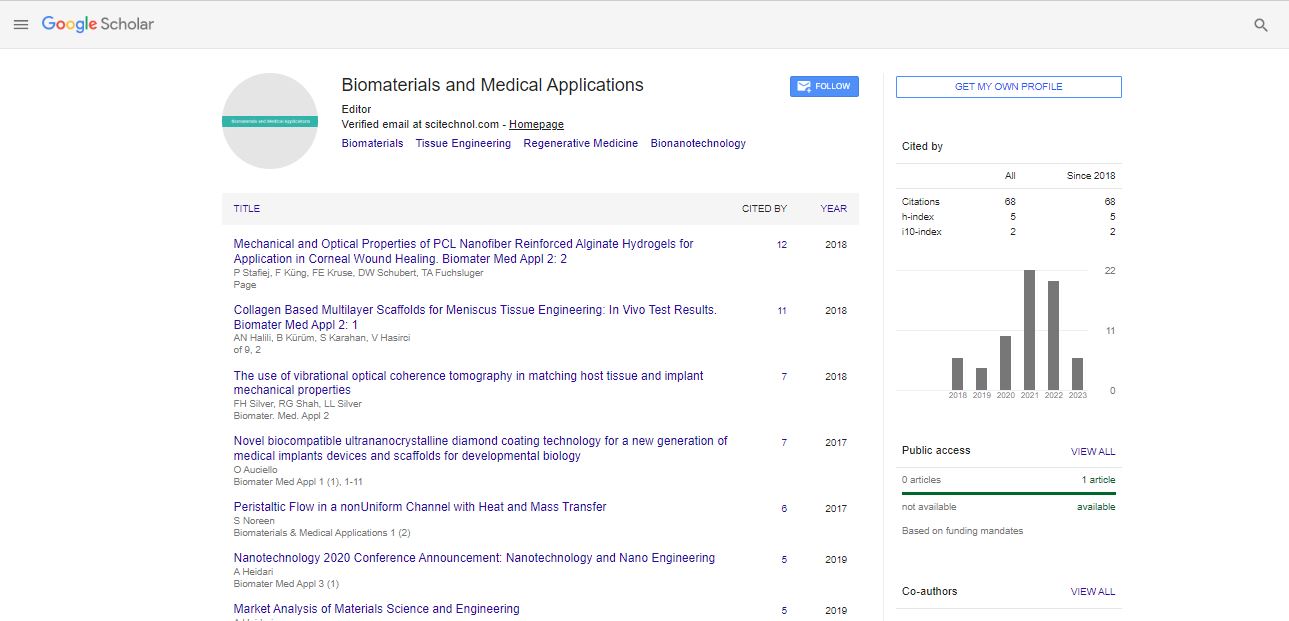Polymeric and inorganic nanomaterials as promising tools for the battle against microbial biofilms
Iolanda Francolini
Sapienza University of Rome, Italy
: Biomater Med Appl
Abstract
The application of nanotechnology in medicine has opened new perspectives for the management of different kinds of pathological conditions, including cancer and neurodegenerative diseases indeed, thanks to their unique size-dependent properties (e.g. large surface to volume ratios) and tailor-made physicochemical properties, nanomaterials may improve the precision and accuracy of diagnosis as well as can significantly improve the therapy by drug targeting and reduction of drug side effects. Nanoparticles (NPs) are therefore definitely promising for the care of diseases recalcitrant to therapy, including microbial biofilm-based infections. Biofilms are sessile microbial communities often multispecies growing on both tissues and abiotic surfaces, like the surfaces of medical devices. Biofilms are recognized to cause difficult to treat infections that persist despite antibiotic therapy. Indeed, cells in biofilm are known to express phenotypic traits that are distinct from those expressed during planktonic growth. As a consequence, biofilm-growing cells show increased tolerance to antibiotics and host immune response. In this regards, nanotechnology may provide promising advancements in the prevention and treatment of biofilm-based infections. Indeed, NPs can be properly surface-engineered in order to have a prolonged retention time at the specific target site and of most relevance; they can act towards cells in a non-growing state, such as persister cells. Finally, nanotechnology may permit to combine intrinsically antimicrobial nanomaterials with drugs. A plethora of different kinds of antimicrobial NPs is nowadays available and under investigation. The presentation includes an overview of the main nanotechnology approaches facing with biofilm-based-related infections with particular reference to polymer nanoparticles, metal/metal oxide nanomaterials and graphene-based materials.
Biography
Iolanda Francolini is worked as a Visiting Scientist at the Center for Biofilm Engineering, Montana, USA. She has obtained her PhD degree in Chemical and Industrial Processes at the Sapienza University of Rome. She is currently working as a Lecturer in the Science and Technologies of Polymers at the Sapienza University of Rome and performs research on antimicrobial polymers. She has published more than 55 papers in reputed journals and has been serving as an Editorial Board Member for International Journal of Molecular Science.
E-mail: Iolanda.francolini@uniroma1.it
 Spanish
Spanish  Chinese
Chinese  Russian
Russian  German
German  French
French  Japanese
Japanese  Portuguese
Portuguese  Hindi
Hindi 